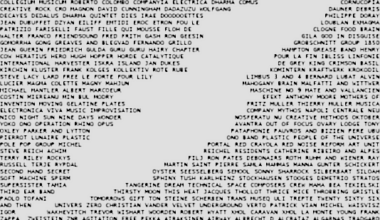Anti-diva and all-round creative polymath, Stereo Total’s late Françoise Cactus caused something of a rumpus when, in 2004, she exhibited a life-size woollen sex doll… yup, you read that right
Want to read more?
Sign up to Electronic Sound Premium to gain access to every post, video, special offers, and more. 100%, all you can eat, no commitment, cancel any time.
Already a premium member? Log in here





